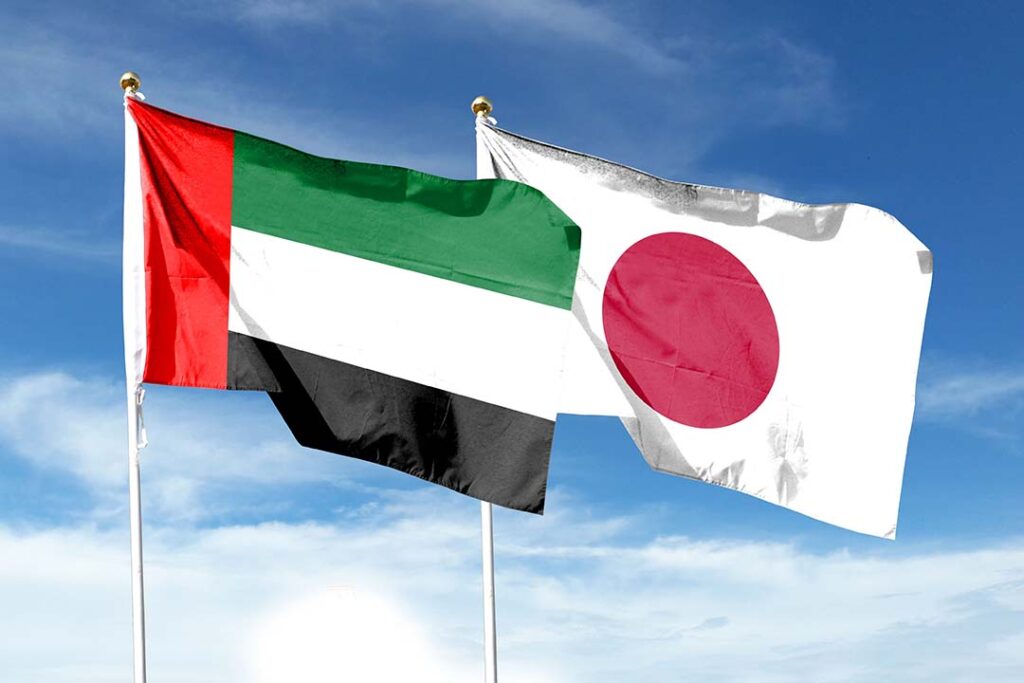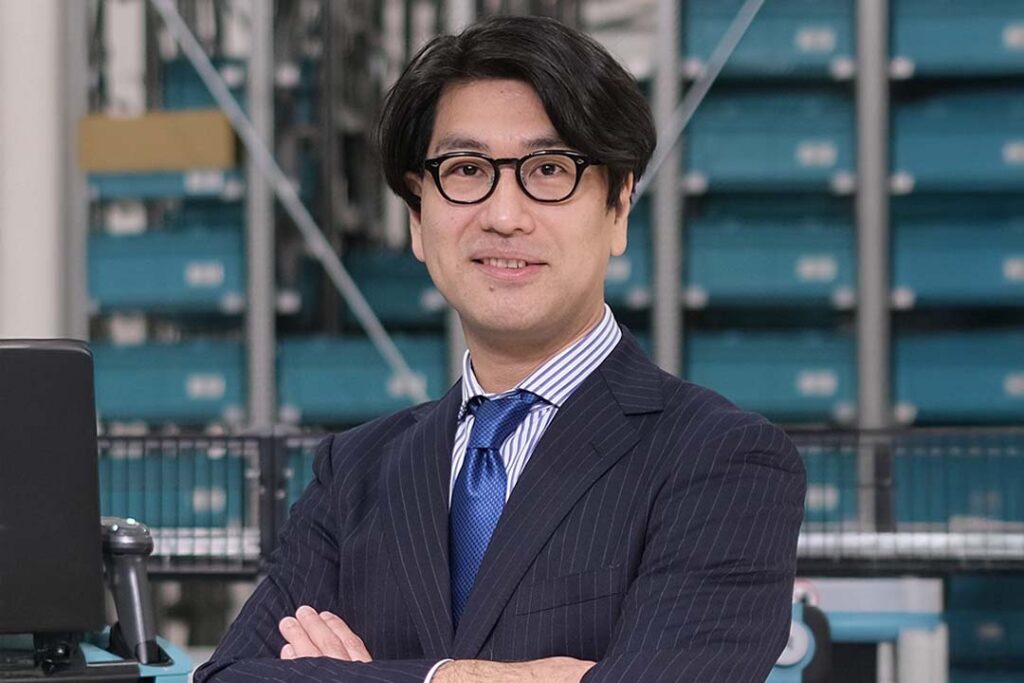With world-renowned international companies and a growing number of small and midsize enterprises, the Netherland’s diverse economy is well positioned for tomorrow.
The country’s strong partnership with Japan continues to go from strength to strength and the Netherlands remains highly attractive for Japanese investors.
“Approximately 600 Japanese companies are based in the Netherlands,” said H.E. Ambassador Hidehisa Horinouchi. “After Brexit (the ‘British exit’ that saw the U.K. leave the European Union), the number of companies relocating to the Netherlands has been growing and therefore the importance of the Netherlands as a business hub in Europe is increasing.”
The Netherlands and Japan share a close bond in terms of business, culture and people-to-people exchanges.
“People from Japan and the Netherlands share common values and commonalities,” said Hideaki Takase, chairman of the Japanese Chamber of Commerce and Industry in the Netherlands. “Japan and the Netherlands are small countries and each economy leverages their commercial endeavors. Both our peoples are highly educated and our 400-year history is a factor in keeping our strong relationship moving forward.”
The historical ties between the two countries continue today and culture, trade and food are an important part of the Netherlands-Japan relationship. Today, the Dutch economy is driven by innovative new industries and traditional businesses.
“The Netherlands and Japan have a long-standing relationship during which they have influenced each other in terms of business, people, culture and cuisine,” said Hokkai Suisan owner Marinus Noordenbos. “The Dutch are inspired by Japanese food culture and as a leading supplier of traditionally prepared Japanese fish products since 1993, Hokkai Suisan is proud to share the wonderful flavors of Japanese cuisine with our customers in the Netherlands and across Europe.”
A modern take on an historic partnership
“Historically the trade relationship between Japan and The Netherlands is an interesting one,” said Bart Jan Koopman, Director at evofenedex. “In 1600 under the direction of Jacob Quaeckernaeck, the first Dutch ship reached Japan. Of the fleet of five ships that left Rotterdam two years before, Quackernaeck’s ship “De Liefde” (The Love) was the only ship to dock in Japan. This event was the beginning of a unique trade relationship between the Netherlands and Japan, in which the Netherlands was the only Western country to trade with Japan for two centuries.”
Deshima and Dujat
“Established on the artificial island of Deshima off the coast of Nagasaki, Japan, the historical relationship between Japan and the Netherlands is over four centuries old,” said Christa de Kemp-Everts, Managing Director of Dujat (Dutch and Japanese Trade Federation). “In recent years, the island was beautifully restored by the Japanese government. Dujat is a non-profit organization which was established in 1984 to improve the trade balance between the Netherlands and Japan. Dujat started with only twelve members. Today we have more than 150 members and the networking function has become the most important part of our member services. As an increasing number of Japanese companies are investing in the Netherlands, we expect to play an increasingly important role in the Netherlands – Japan relationship in the years ahead.”
‘Rolling Out the Orange Carpet’
The Netherlands ability to attract investment from Japan is well documented and the Netherlands Foreign Investment Agency is committed to ‘Rolling out the Orange Carpet’ in order to assist Japanese companies coming to the Netherlands.
“As the Netherlands Foreign Investment Agency, we are here to help Japanese companies settle in the Netherlands,” said Hans Kuijpers, Director Investment Projects, Americas and NE Asia. “We focus on providing a high level of service, which itself is a very Japanese concept. As a team, our goal is to get companies settled as quickly and comfortably as possible. As Japan is some 10,000 kilometres distant from the Netherlands, it is quite a big step for them to come to Europe and work and live here. So, the balance of good business and happy life is a key consideration for their success.”
“Japanese companies generally tend to look for stability and there are many cultural studies that back this up, and this is also reflected in the business culture,” adds Michiel Bakhuizen, Strategic Advisor and Spokesperson of the Netherlands Foreign Investment Agency. “At the moment, both COVID-19 and Brexit are causing them a certain degree of cautiousness and they are currently looking at countries with a more stable base. The Netherlands is in a very good position because we are a stable country and our economy is growing – even in challenging international economic times.”
The Dutch gateway to Central Western Europe
“The Netherlands has a strong position in Europe for accommodating international trade by air and deep-sea,” said Bart Jan Koopman. “Rotterdam is the largest container-port in Europe and Amsterdam airport is the 3rd largest airport for freight in Europe. The Netherlands is also located in a region with other important ports, the so-called Hamburg Le Havre range. Ports like Hamburg and Antwerp are situated very close to Rotterdam. The regional collaboration within the EU, the Benelux (Belgium, The Netherlands and Luxembourg) is involved in roughly one quarter of all air-cargo operations and one fifth of the maritime operations in the whole of Europe. Apart from geographical position the Netherlands has a long tradition in trade-business collaboration. This result is efficient customs clearance at ports.”
Clear communications between East and West
Akira Havermans Chairman of the Netherlands Chamber of Commerce in Japan recognizes the importance of clear communication in order to facilitate Dutch – Japanese business and trade; “It can be said that Japan and the Netherlands are at opposite extremes and quite different. For example, Dutch people are known for their direct way of communicating in a ‘low context’ environment, while Japanese people are known for being somewhat indirect in their communications.”
Rediscovering Japan
An appreciation of the arts, music, literature and culture is shared by Japan and the Netherlands.
“Japan Museum SieboldHuis exhibits a vast array of objects painstakingly collected by Philipp Franz von Siebold during his stay in Japan (1823-1829)”, said Kris Schiermeier, Director of the Japan Museum SieboldHuis. “They are yours to discover in the stately Dutch residence that once was his home. It was here that he first displayed his treasures brought back from his beloved Japan. They included medicinal objects, art, maps, books, plants, and animals. At present the works of “Ogata Gekkō and his contemporaries” are on display. The works of this versatile artist will be exhibited until September 5, 2021. Private loans (including a large collection from Tasmania!), consisting of prints, books, albums, and exquisite paintings, have made this exhibition possible. In addition to more than one hundred works by Ogata Gekkō (1859 – 1920), forty works of art by his contemporaries are on display. This exhibition offers a new perspective on printmaking during the Meiji period (1868-1912) and is a must see for lovers of Japanese art.”
“Many artists from our collection are directly inspired by western artists,” said Elise Wessels, Director/owner at Nihon no hanga – Japanese Print Collection. “The individuality and emotional expression in the art of Dutch artists such as Vincent van Gogh, Kees van Dongen en Piet Mondriaan spoke to this new generation of free-thinking Japanese artists. Through their work, they found their own voice. It is important to cherish the connection these artists found with their western counterparts, as this interaction between east and west continues to inspire future generations of Dutch and Japanese printmakers. It is one of our missions to maintain a strong Dutch-Japanese relationship, and I am therefore very thankful the Japanese government honoured me in 2019 with the decoration ‘Order of the Rising Sun, Gold and Silver Rays’ in recognition of contributing to the promotion of Japanese arts in the Netherlands.”
The Netherlands and Japan – working together
“Dutch people are open, fluent in English and well educated,” concluded Takeshi Gotoh of Japan Euro Promotions. “The Netherlands is safe, has good transportation and logistics links and very advanced infrastructure. World-leading human resources are gathered in the Netherlands from all over the world as housing, education and social facilities are very good. Japanese people can easily start a company if the business benefits Dutch society.”
“It would be a waste if serious and hardworking people from Japan and the Netherlands walked alone. If these two countries work together for the well-being of humankind, they can provide the earth with more happiness than it expects.”
Click here for more information on:
Japanese Chamber of Commerce and Industry in the Netherlands (JCC)
Netherlands Foreign Investment Agency
The Netherlands Chamber of Commerce in Japan (NCCJ)
DUJAT (Dutch and Japanese Trade Federation)















